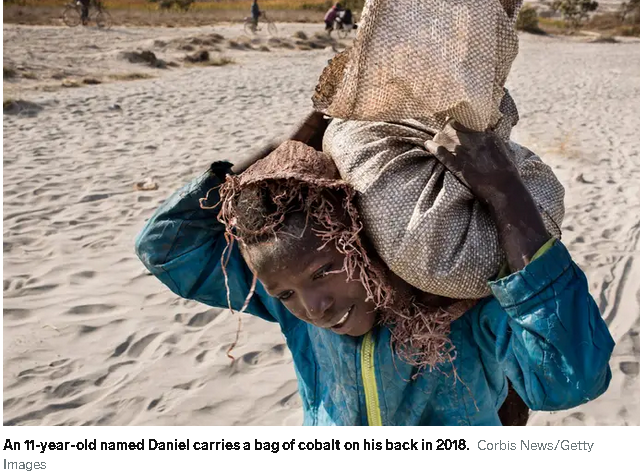Understanding the ESG Challenges of Cobalt Mining in the Congo
Understanding the ESG Challenges of Cobalt Mining in the Congo
Introduction
Cobalt is a key ingredient in batteries for electric vehicles and smartphones, making it crucial for modern technology. However, mining cobalt, especially in the Democratic Republic of Congo (DRC), comes with serious environmental, social, and governance (ESG) issues. The DRC produces about 70% of the world’s cobalt, but this mining process has significant negative impacts due to unscientific approach. This article explores these ESG challenges in depth.
 |
| Cobalt ore |
Environmental Impact of Cobalt Mining
Cobalt mining in the DRC has led to severe environmental damage. The process often involves harmful chemicals like sulfuric acid and cyanide, which can pollute water and soil. This contamination affects local wildlife and ecosystems, leading to deforestation and the destruction of natural habitats. Mining waste is frequently dumped without proper regulation, causing further environmental harm. A report by Amnesty International highlighted that local communities suffer from polluted water sources and reduced agricultural productivity due to mining activities.
Social Challenges of Cobalt Mining
The social impacts of cobalt mining in the DRC are equally troubling. Many mines rely on child labor, with children as young as six working in dangerous conditions. According to UNICEF, around 40,000 children work in mines across southern DRC. These children often miss out on education and are exposed to health risks. Additionally, mining activities have displaced many indigenous communities, worsening poverty and inequality. The lack of proper healthcare, education, and infrastructure further marginalizes these communities.
Governance Issues of Cobalt Mining
Governance issues in the DRC’s mining sector are marked by corruption, weak regulations, and lack of transparency. The government's poor oversight has allowed illegal and informal mining to thrive. These unregulated operations contribute significantly to environmental and social problems. Transparency International's Corruption Perceptions Index ranks the DRC among the most corrupt countries, highlighting the challenges in ensuring responsible mining practices. The opaque supply chain of cobalt makes it difficult for companies to trace the source of the metal, leading to potential reputational risks and regulatory issues.
 |
| Peoples carrying mined Cobalt ores |
Impacts on Local Communities
Local communities bear the brunt of unscientific cobalt mining’s negative impacts. Contaminated water sources lead to serious health problems like respiratory illnesses, skin diseases, and neurological disorders. The environmental damage disrupts traditional livelihoods, such as farming and fishing, leading to food insecurity and economic instability. This forces many to rely on unsafe and exploitative mining work. Social tensions rise over resource access, land rights, and economic opportunities, often leading to conflict and insecurity.
Conclusions
Cobalt mining in the DRC presents complex challenges that affect the environment, society, and governance. Addressing these issues requires the combined efforts of governments, corporations, civil society, and local & international communities. By promoting ethical sourcing, strengthening regulations, and empowering communities, we can work towards a more sustainable and equitable future for everyone involved in the cobalt supply chain.
.png)




Congo needs a comprehensive ESG policies with real implementation on ground level.
ReplyDelete